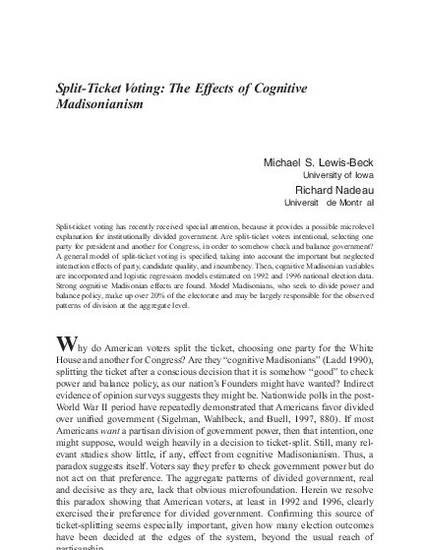
Split-ticket voting has recently received special attention, because it provides a possible microlevel explanation for institutionally divided government. Are split-ticket voters intentional, selecting one party for president and another for Congress, in order to somehow check and balance government? A general model of split-ticket voting is specified, taking into account the important but neglected interaction effects of party, candidate quality, and incumbency. Then, cognitive Madisonian variables are incorporated and logistic regression models estimated on 1992 and 1996 national election data. Strong cognitive Madisonian effects are found. Model Madisonians, who seek to divide power and balance policy, make up over 20% of the electorate and may be largely responsible for the observed patterns of division at the aggregate level.
Available at: http://works.bepress.com/michael_lewis_beck/160/
